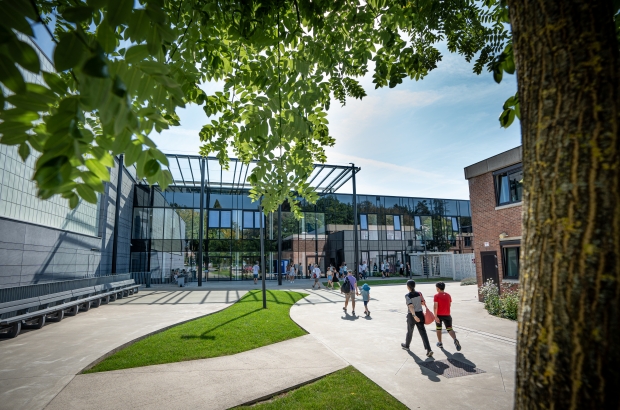- Daily & Weekly newsletters
- Buy & download The Bulletin
- Comment on our articles
The British School of Brussels continues to enjoy global top 10 international ranking
The British School of Brussels is riding a wave of international recognition for its “values-driven” education following another Spear’s School of the Year award. This success is the result of high-quality teaching and a nurturing community as much as exemplary exam results, insists Principal Melanie Warnes. Reflecting on its transformation from a “good” school to a “great” one, she outlines why students thrive at BSB and presents a dynamic new building project that will further enhance the Tervuren facilities on the outskirts of Brussels.
New award
It’s the fourth year in the row that the BSB is ranked one of the top schools in the world. While outstanding exam results are a prerequisite for award nominations, the factors that make the school standout are “its special atmosphere, unique ethos and progressive commitment to a holistic education,” says Warnes, who points out that, at BSB, academic achievement is not ranked higher than the emotional or the ethical.
The school is living up to its bold mission statement that it is “an educational force for good”, she explains. “Now we are seeing the outcome of this evolution as the interaction between every part of the school creates a unified coherent community for the success of the child.”
High calibre staff and curriculum
With 1,350 students aged from 1 to 18, the BSB boasts an expert team of teachers and staff. The Principal highlights the school’s investment in recruiting high calibre personnel and rewarding them well. “Staff know what each child needs to advance and improve, including helping them choose the best course or university,” she explains. Treated as members of the school’s “family”, they also receive ongoing learning. “You can tangibly feel these deep relationships when you walk through the school,” says Warnes.
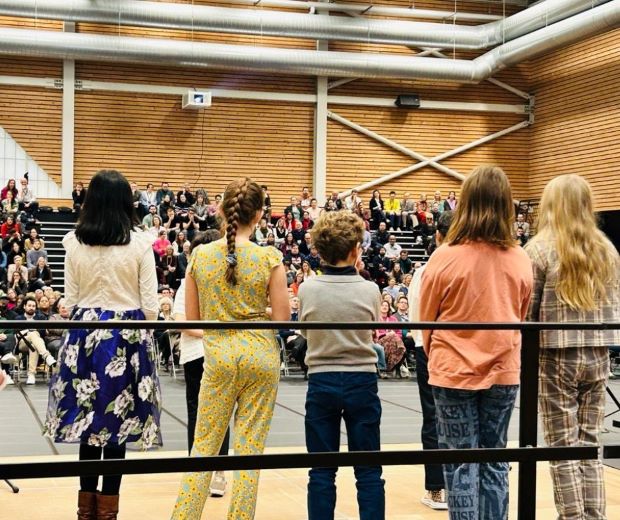
The BSB is the only school in Belgium to offer three pre-university routes: A Levels, the International Baccalaureate (IB) Diploma and BTEC vocational courses in Business, Sports and Hospitality. Blending academic and vocational is also an option at the non-selective school. The Primary curriculum is a tailored skills-based, inquiry-driven approach that has been adapted from the UK national curriculum for the school’s international population.
Unesco’s four pillars: Learning To Know, Learning To Do, Learning To Live Together and Learning To Become, form the foundation of the curriculum, explains Warnes. While recognising the importance of scholarly endeavour as a passport to the world, she is adamant that the priority is giving students an all-round education. The school benefits from its expansive forest setting in offering a full enrichment programme of clubs, sports and activities.
“For all students, what sort of person you are is equally important to academic achievements, along with having the self-confidence to make the right choices,” she adds. Families select the school because they want to be part of its community. “We have parents from all over the world with different levels of expectation, including good exam outcomes, but we wouldn’t achieve these if the students didn’t feel secure, if the teachers didn’t know their stuff.”
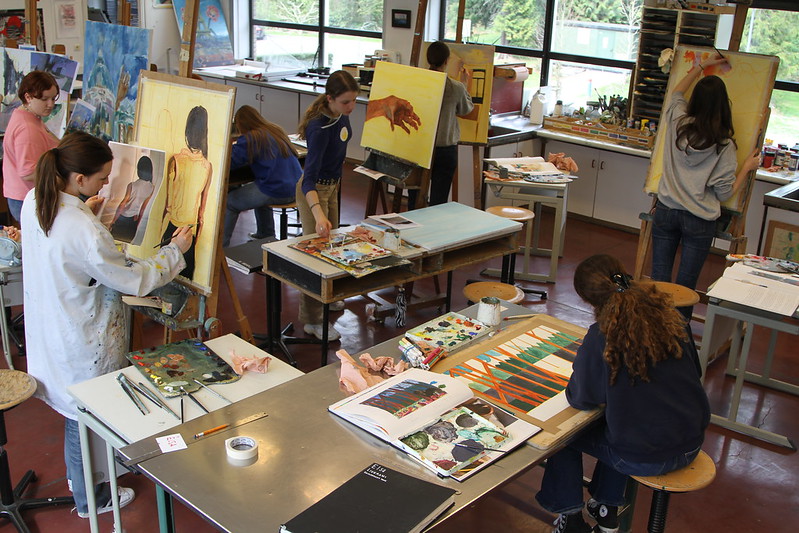
International environment
The BSB is a cosmopolitan environment with 70 nationalities represented. Although British students make up the largest group at between 25 and 30%, many have dual nationality or have always lived abroad. “We have evolved from being a British school; what makes us special is our outward-looking international ethos,” says Warnes. “While we include this in our guiding statements, our students are already living it.”
This means students are tolerant despite the many conflicts in the world. “It’s really harmonious here, there’s an understanding of what our community stands for; we are an oasis of internationalism.” Warnes also credits parents for their international outlook.
Leadership team and careers
Ensuring the smooth running of the school is a leadership team whose key role is to connect all the dots so that they “seamlessly hold everything together”, says Warnes. She describes the school as a complex self-sustaining ecosystem, akin to a beehive or a highly-efficient airline, as everyone and everything clicks together. “People know implicitly what their job is as well as our values,” insists Warnes. Preferring a non-micro management style, she explains: “We don’t introduce policies that undermine the guiding statements and we ensure there is dialogue with the staff.”
The school’s Futures' career programme is another point of pride. “I’m sure other schools have good ones but ours is amazing,” she says confidently, citing its connectivity to the outside world with students’ learning not only how to influence their own lives but those around them via humanitarian and charity projects.
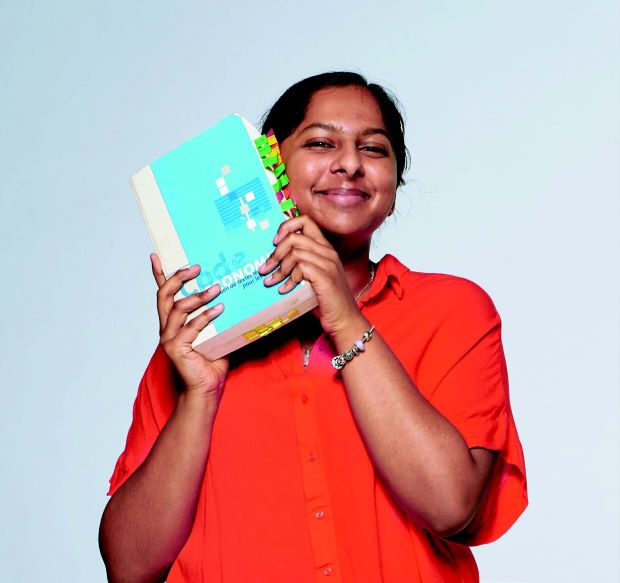
Learning sustainable and transferable skills form the foundation of this programme. Former pupil Nikita Rajkumar (pictured), who now works as an Investment Banking Legal Analyst at Goldman Sachs, recently returned to talk to students. “She articulated the extra skills that BSB had given her, as well as the commitment and dedication of teachers and staff,” says Warnes. These enrichment competences are not viewed as “extra”; they represent a “fully-integrated additionality that is the essence of BSB”.
Student campaigns
There are currently around 25 student-led projects at the school. How do these campaigns get from the classroom to the Principal’s table? By not putting a ceiling on students’ aspirations and possessing an open process that everyone understands, explains Warnes. Mounting a campaign, understanding the politics behind it and learning lessons if it fails, are all project management skills, she points out. “They can shape policy by knowing how to put together a case, to persuade and to negotiate.”
She cites an example of a group of students who had an idea for greening the concrete walkway to the main reception. They analysed the flower beds and talked to site management about drainage and pipes as well as the finance team before presenting their project to governors. Having received the green light, they are now working on its implementation. “The students will probably have left the school before it’s completed, but they are doing it as an investment for future generations, which is part of our global citizenship ethos,” says Warnes.
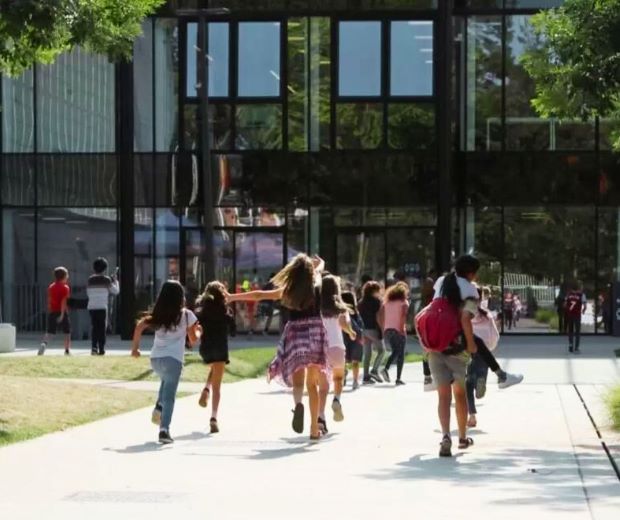
New building project and final year as principal
In addition to a modular building currently under construction, the school is looking forward to a major project that will accommodate the early years and lower primary plus a new cafeteria. “It will be exciting to have buildings that absolutely match the way we teach: gorgeous facilities where everything is made for little people.” Architects have designed from the inside out to create the best interiors to facilitate learning interactions. While making the most of forest views, they include eco-friendly features such as climate control.
The new facilities are scheduled to open by the beginning of 2027, which means that the project will be opened by a new Principal. After eight years in the role and 40 years in education, Warnes is leaving at the end of the year. “The governors have chosen well and I am already in liaison with him,” she says reassuringly. “Everyone is calm about it, which is typical of the school.”
While recognising the importance of the Principal as a figure head, Warnes believes she has done her job well if “nobody notices I’ve gone”. For BSB, which was established in 1969, “it’s always about evolution of quality and the handover is all about continuity”.
The British School of Brussels
Pater Dupierreuxlaan 1
3080 Tervuren
Belgium
+ 32 2 766 04 30












